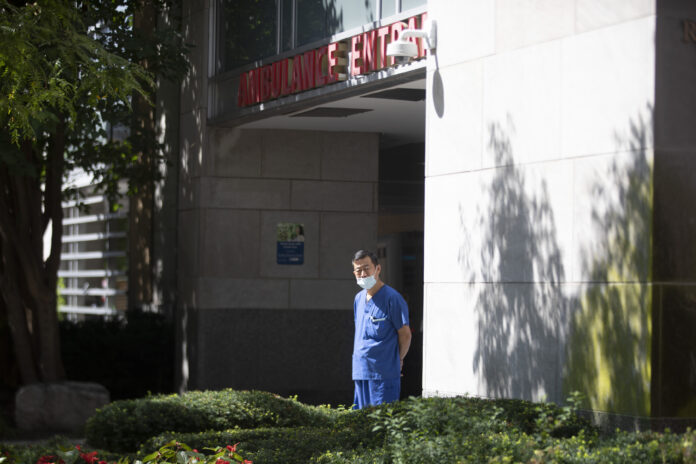Governments have faced pressure throughout the pandemic to invest more money into health care and to come up with detailed plans that include how to recruit, train and retain workers to replace those who have left.
In November in Ontario, the government announced as part of its fall economic statement that it’s investing $342 million to add and upgrade the skills of more than 5,000 registered nurses and registered practical nurses and 8,000 personal support workers.
Another $57.6 million will go toward hiring 225 more nurse practitioners in long-term care, starting next year.
Story continues below advertisement
In Manitoba, the government announced Wednesday it’s investing $19.5 million to add 259 nurse training seats at five post-secondary institutions across the province as part of its multi-year plan to add roughly 400 seats over the next few years.
Trending Stories
Omicron and social gatherings. Here’s 4 questions to ask before you go
Ontario reports 2,421 new COVID cases, nearly double from a week ago
There are more than 800 nursing seats currently offered at six publicly funded post-secondary institutions across the province, officials said Wednesday.
With Omicron spreading in Canada, governments must make further investments to boost hospital capacity in anticipation of another surge, said Linda Silas, president of the Canadian Federation of Nurses Unions.
“The shortage of health-care professionals is at a crisis stage, and that’s why doctors, specialists and surgeons, are advocating to hire more nurses and put more funding to help (ease) these (surgery) wait times,” she said.
Story continues below advertisement
“What we need is a strong national strategy with targeted funding to retain and recruit nurses, health-care workers and really bring stability in our workforce.”
In its throne speech last month, the federal government promised to help improve health-care systems and alleviate surgery backlogs.
Health Minister Jean-Ives Duclos acknowledged on Nov. 30 that there is “a lot of work to do.”
“Our understanding is that those delays are being reduced slowly because the pandemic is relatively under greater control than it was a few months ago,” he said. “We know one of the priorities is exactly that — to handle backlogs in surgeries.”
As Omicron spreads in Canada, officials have been introducing measures to slow its spread. The Public Health Agency of Canada projected if Omicron becomes the dominant strain of the virus in the country, cases will skyrocket by the new year.
Story continues below advertisement
Ontario, which is among the leaders in Canada’s COVID-19 resurgence, logged 2,421 new cases on Thursday. However, patients with COVID-19 in ICUs have remained relatively stable, but are overall on a slow rise.
COVID-19: Ontario ICU patients could exceed 600 if additional measures aren’t taken
Provincial health experts projected Thursday that unless community contacts are significantly reduced, the province’s ICU capacity could be severely strained by early January.
As we come to learn more about the variant, thinking about an Omicron-led surge is inducing anxiety, said Silas.
“When you work in an intensive care atmosphere, and now the whole health-care system is in that intensive care atmosphere where it’s go, go, go, you need breaks and they haven’t had breaks for 22 months,” she said.
“Everyone was looking forward to getting at least some time off, and that looks like it’s going to be cancelled for everyone.”
Story continues below advertisement
For months, it felt like society was starting to get back to somewhat pre-COVID-19 normalcy, Nimjee said, but quickly adjusting to this new reality, especially with the holidays around the corner, is tough.
“It takes a while to almost relax and fall back into that, and then to shift back out of that so quickly … it’s hard,” she said.
“But what we have to do it, we got to do it, so that’s what we’re going to do.”
As for Hawryluck, she pleads for Canadians to stay safe during the holidays and to get vaccinated.
“I can’t tell you how hard it is to watch somebody struggle to breathe, to watch somebody struggle to breathe even on a ventilator, to not know if they’re going to live from day to day, hour to hour sometimes, and to have to convey that news to a family, it is heartbreaking,” she said.
Story continues below advertisement
“If we as a group of people … can do things that help prevent us from getting there, even if that prevention is not 100 per cent effective, it’s worth it.”
— with files from Jamie Mauracher and The Canadian Press
© 2021 Global News, a division of Corus Entertainment Inc.



